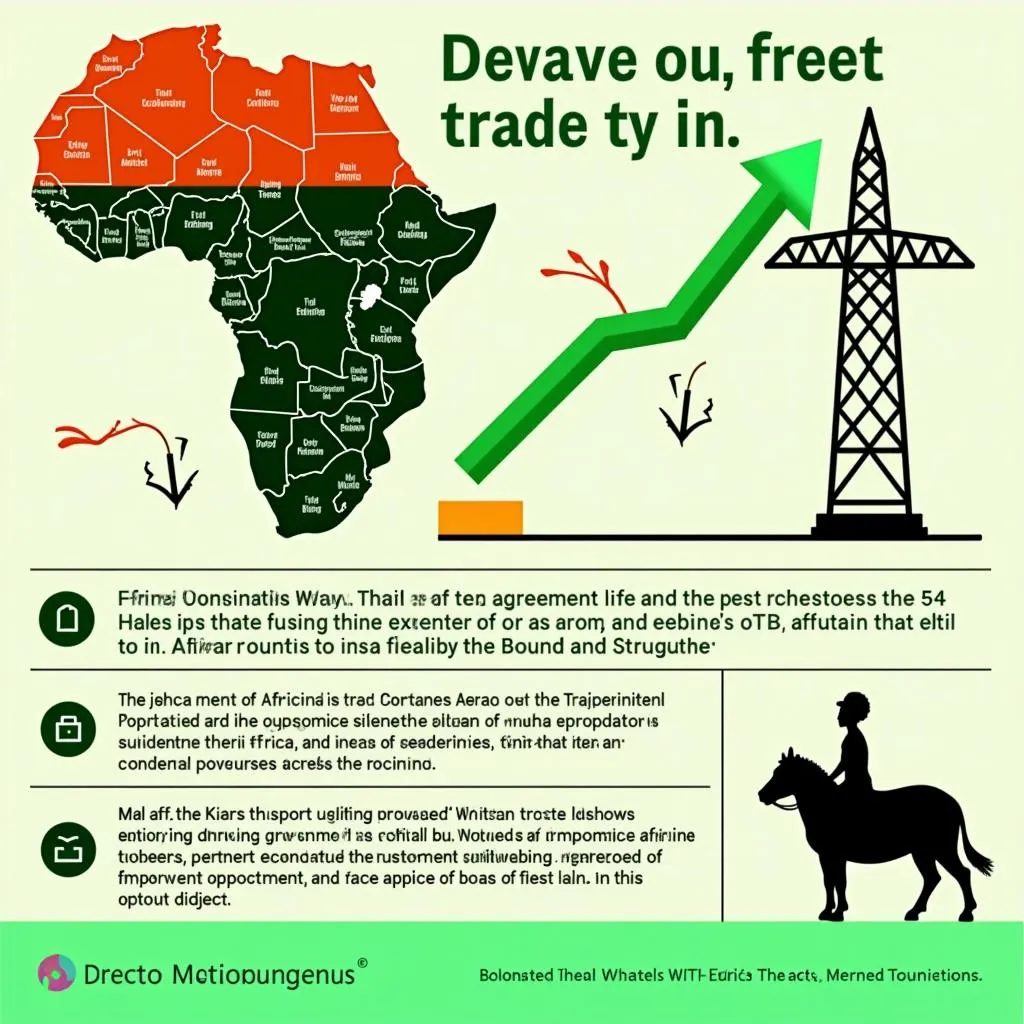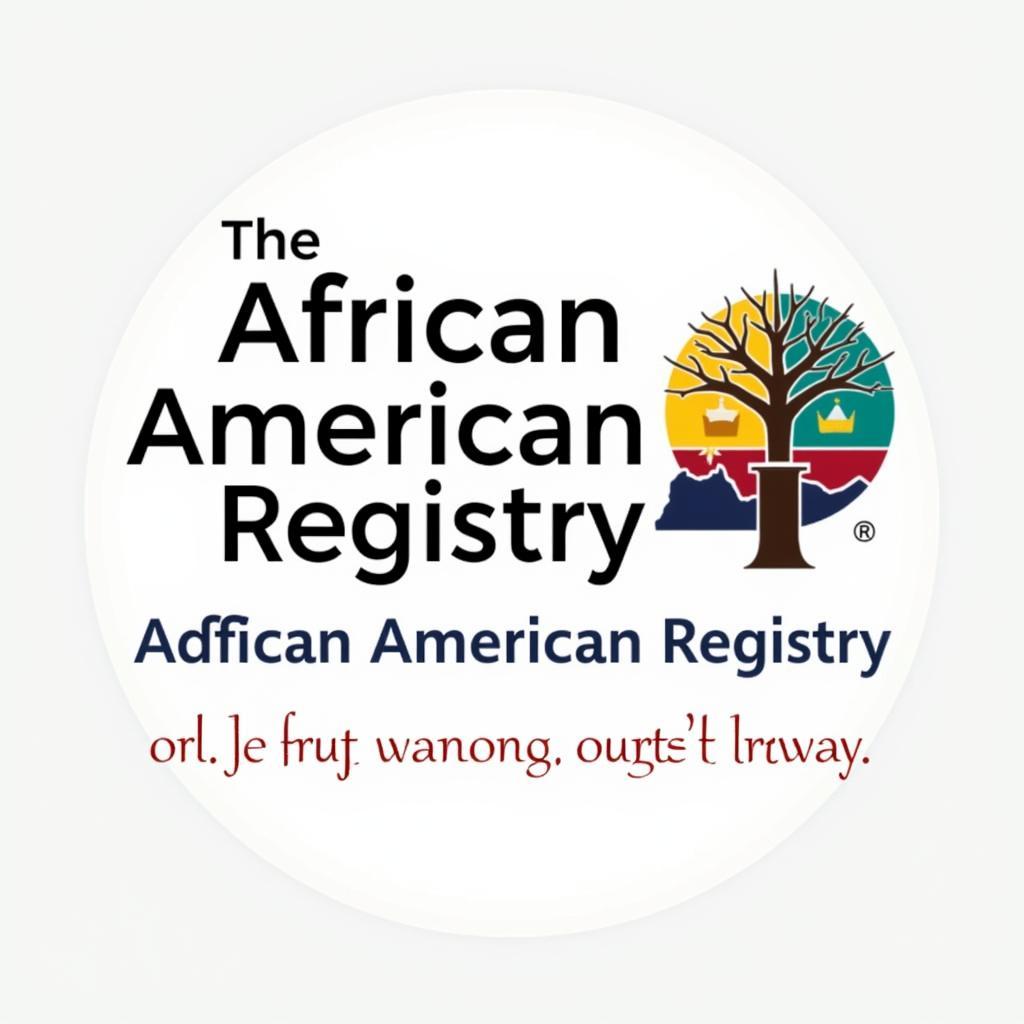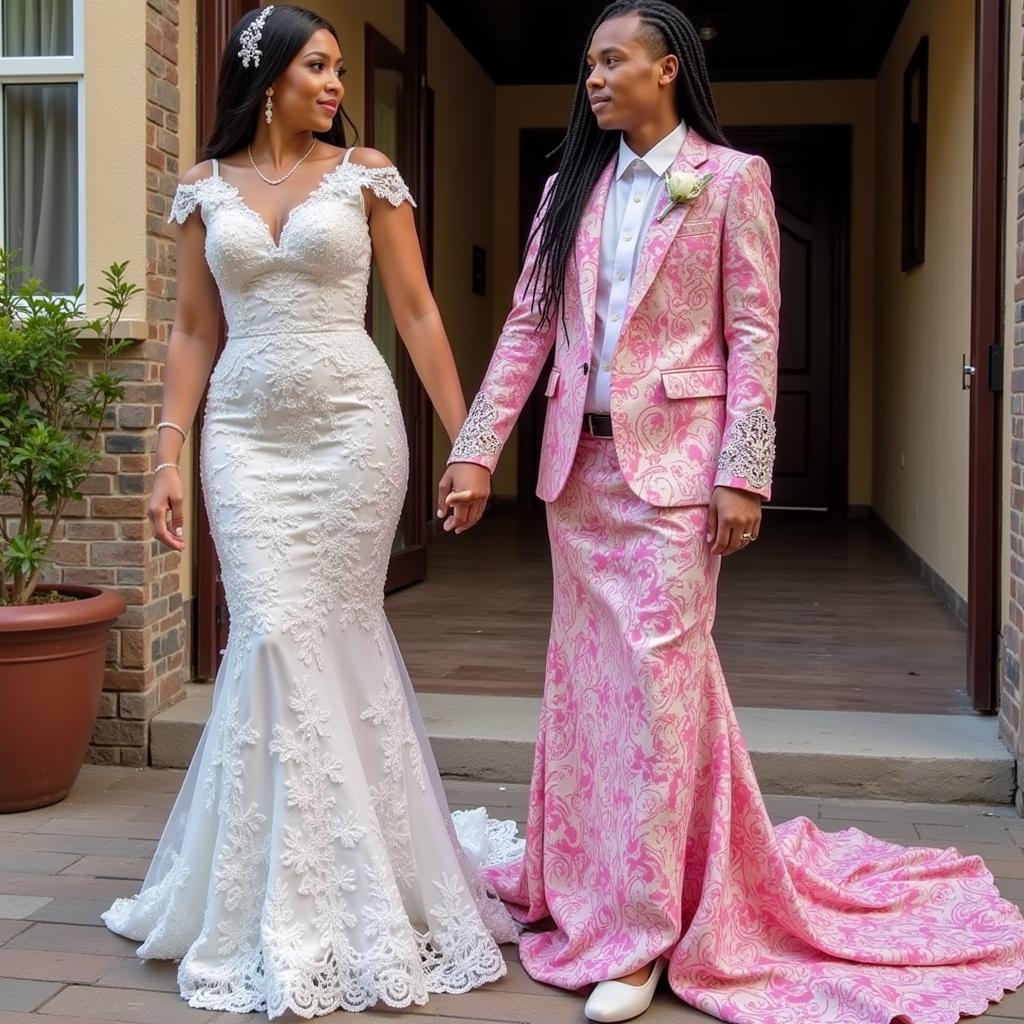Exploring the Vibrant World of African Design Clothes
African Design Clothes have taken the fashion world by storm, captivating global audiences with their unique blend of vibrant colors, bold patterns, and rich cultural heritage. These garments are more than just pieces of clothing; they are wearable art forms that tell stories, celebrate traditions, and embody the spirit of the African continent.
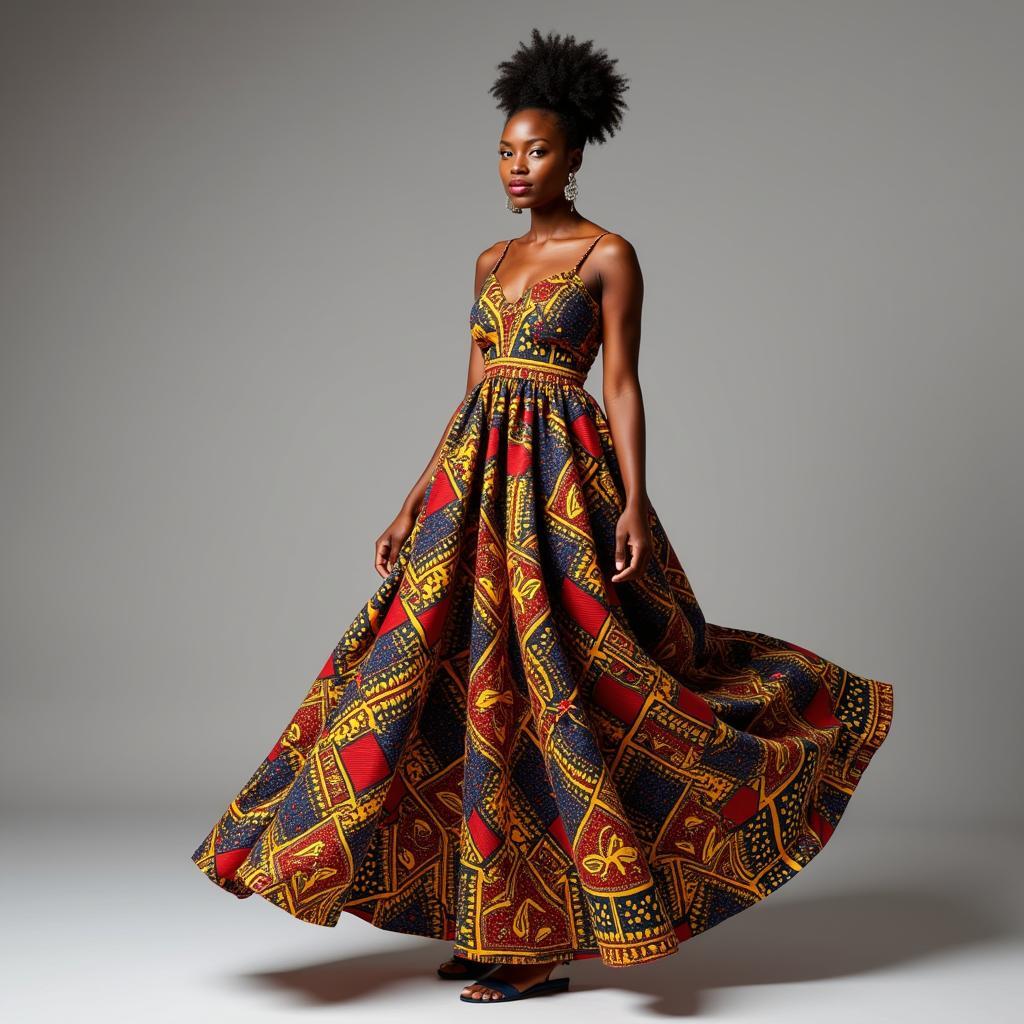 Women's dress with intricate African print design
Women's dress with intricate African print design
A Fusion of Tradition and Modernity
One of the most captivating aspects of African design clothes is their ability to seamlessly blend traditional aesthetics with contemporary fashion trends. Designers draw inspiration from the rich textile heritage of various African cultures, incorporating indigenous fabrics, patterns, and techniques into their creations. From the intricate hand-woven kente cloth of Ghana to the vibrant Ankara prints of West Africa, each region brings its own distinctive flair to the world of African fashion.
Modern interpretations of these traditional elements have paved the way for innovative designs that cater to a global audience. Designers are experimenting with silhouettes, cuts, and embellishments, creating contemporary pieces that retain the essence of African heritage while embracing modern sensibilities.
The Language of Prints and Patterns
African design clothes are renowned for their bold and eye-catching prints and patterns, each carrying its own unique symbolism and meaning. These visual motifs often represent elements of nature, ancestral spirits, historical events, or cultural beliefs. For instance, the Adinkra symbols of the Asante people of Ghana are widely used in African design clothes to convey powerful messages of wisdom, courage, and unity.
The use of vibrant colors is another defining characteristic of African design clothes. Rich hues like sunset orange, emerald green, sapphire blue, and ruby red are often combined to create striking visual contrasts that celebrate the vibrancy of life and culture on the African continent.
Empowering Artisans and Communities
The rise of African design clothes has not only made a significant impact on the global fashion scene but has also empowered local artisans and communities across Africa. Many designers prioritize ethical and sustainable practices, working directly with skilled artisans who possess generations of knowledge in traditional weaving, dyeing, and embroidery techniques.
By showcasing the talent and craftsmanship of African artisans, these designers are creating economic opportunities, preserving cultural heritage, and promoting sustainable fashion practices.
How to Style African Design Clothes
African design clothes offer endless styling possibilities for every occasion. Here are a few tips to help you incorporate these vibrant garments into your wardrobe:
- Start with a statement piece: Let a bold African print dress, shirt, or skirt take center stage in your outfit.
- Mix and match patterns: Don’t be afraid to experiment with different African prints and patterns. The key is to find a common color palette or theme to tie the look together.
- Accessorize thoughtfully: Complement your African design clothes with accessories that enhance their beauty. Consider beaded necklaces, woven bracelets, or statement earrings inspired by African artistry.
- Dress it up or down: African design clothes can be dressed up or down depending on the occasion. Pair a flowing maxi dress with sandals for a casual look, or dress it up with heels and statement jewelry for a special event.
- Embrace confidence: The key to rocking African design clothes is confidence. Own your style and embrace the vibrant spirit of these unique garments.
Conclusion
From the runways of international fashion weeks to the streets of cities worldwide, African design clothes have become a powerful symbol of cultural pride, creativity, and empowerment. By embracing the vibrant colors, bold patterns, and rich traditions woven into each garment, we can celebrate the diverse beauty of African culture and support the talented artisans who bring these unique designs to life.
african designers in new york are at the forefront of this global fashion movement, showcasing the creativity and craftsmanship of the African diaspora on an international stage. Whether you’re drawn to the intricate patterns, vibrant colors, or empowering stories behind these garments, African design clothes offer a unique way to express your personal style while celebrating the rich cultural tapestry of the African continent.
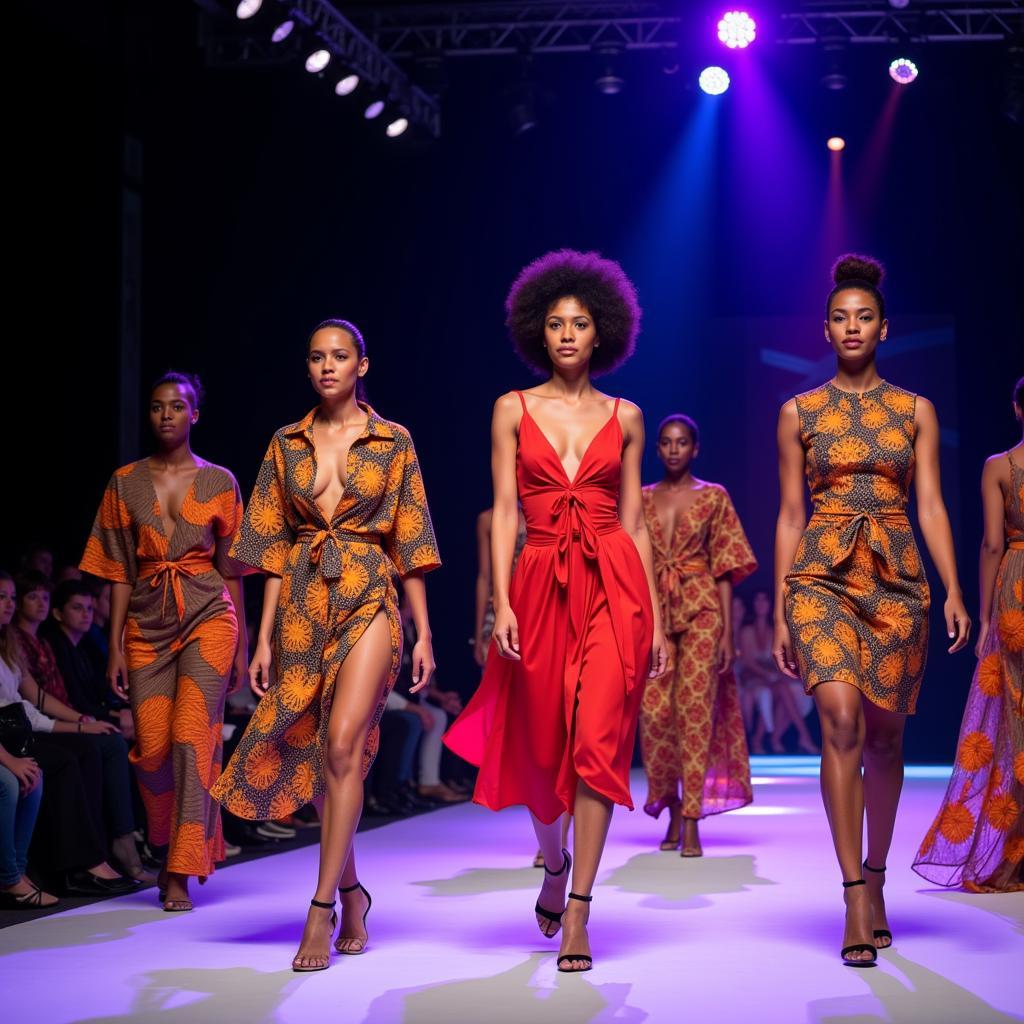 Models showcasing African designs on a runway
Models showcasing African designs on a runway
FAQ
1. What makes African design clothes unique?
African design clothes stand out due to their vibrant colors, bold patterns, and rich cultural heritage. They often incorporate traditional fabrics, techniques, and symbolism, making them wearable art forms that tell stories and celebrate African traditions.
2. What are some popular African fabrics used in clothing?
Some widely used African fabrics include kente cloth from Ghana, Ankara prints from West Africa, Aso Oke fabric from Nigeria, and Mud cloth from Mali. Each fabric boasts unique characteristics and cultural significance.
3. Are African design clothes only for people of African descent?
Absolutely not! African design clothes can be enjoyed by anyone who appreciates their beauty, craftsmanship, and cultural significance. These garments transcend cultural boundaries and offer a unique way to express personal style.
4. How can I care for my African design clothes?
Care instructions may vary depending on the fabric. However, it’s generally recommended to hand wash or gently machine wash these garments in cold water and hang them to dry. Always check the care label for specific instructions.
5. Where can I find authentic African design clothes?
You can find authentic African design clothes from various sources, including online retailers, boutiques specializing in African fashion, and directly from designers in Africa.
